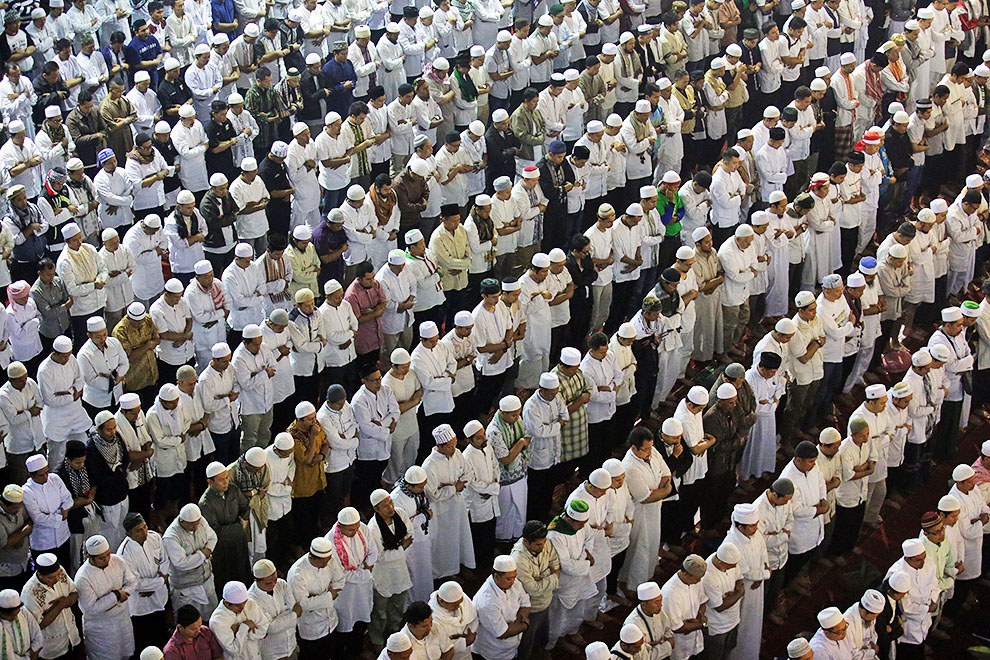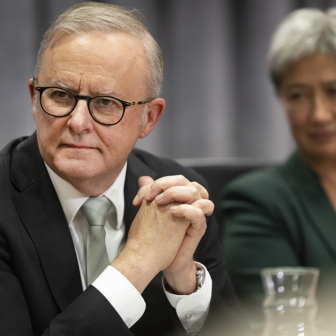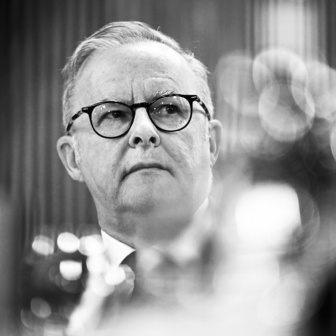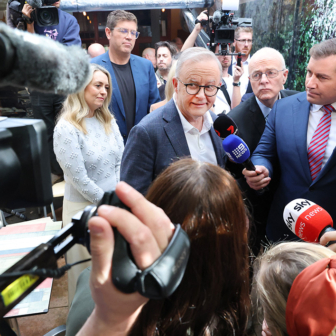In May last year, in the midst of the US presidential primaries, voters in the Philippines chose the “Trump of the East,” Rodrigo Duterte, to be their new president. The seventy-one-year-old former mayor, a straight-talking strongman whose campaign focused sharply on drugs and crime, was notorious for remarks that seemed likely to alienate large swathes of the voting public, including women and Catholics, and had shown a casual disregard for the law. Despite (or perhaps because of) those controversies, he won the election in a landslide.
Central to Duterte’s message was his depiction of the Philippines as a “narco state.” As his spokesman Martin Andanar told me last month, “A narco state is where your politicians, your mayors, your councilmen, your barangay captains [the lowest level of elected official], your policemen, your judges are part of the value chain of selling drugs.” In the words of another government staffer, Pompee La Vina, speaking on CNN, “If we don’t control it or stop it, we’ll be controlled by drug lords… All the other things [we do as a government] won’t matter.” Without Duterte, according to another official, “all of society’s undertakings will have been under the influence of illegal drugs.”
In government, the narco state has become Duterte’s catchcry, justifying around 7000 extra-judicial killings, the targeting of public figures and the threat of martial law. Yet a 2015 UN report shows that while amphetamine use in the Philippines is high, the most recent available figures show rates of use roughly matching those in Australia and New Zealand – and consumption of cocaine, cannabis and ecstasy in the Philippines was far lower than in those two countries.
Calls to make drugs a health issue rather than a problem explicitly linked to crime have been drowned out by pro-Duterte messages, most persistently and frequently in the country’s evolving online environment. Philippine citizens with internet access average eighty-nine hours online each week, the second-highest figure in the world. (Australians, French and German citizens spend around forty-six hours online each week, and among Japanese the figure is forty hours.) In 2014, the typical Filipino Facebook member spent two hours and twenty-five minutes on the social media platform every day, helping earn the country the nickname, the “Facebook nation.”
Social media now plays a crucial role in winning the hearts and minds of voters, and in the Philippines, as elsewhere, truth has been stretched to breaking point online. In the aftermath of last year’s presidential election, news site Rappler uncovered what it described as a “machine” of “paid trolls, fallacious reasoning and propaganda techniques” that had helped shift attitudes towards the candidates. Duterte’s “narco state” message had been reinforced again and again by official statements, by social media commentators and by the “machine” itself.
Central to this new media ecosystem were prominent pro-Duterte bloggers. Mocha Uson, a popular singer and model, campaigned strongly online for Duterte through her blog, which has attracted four million likes and records around 1.2 million “engagements” each week. Writer R.J. Nieto, with his blog Thinking Pinoy and with the high engagement of his 470,000 Facebook followers, claims to have been “kicking mainstream media’s arse for the past year” in terms of engagement with readers. “The tables have turned,” he wrote, “[and] social media has taken over the task of shaping public discourse.” Much like alternative news sites in the US, these and other high-profile online commentators consistently argue that the mainstream media is biased and unfair in its coverage of Duterte.
Duterte seems to agree. He has engaged in several “boycotts” of the mainstream media so far in his presidency. Uson was given a place on the government’s Movie and Television Review and Classification Board, and a number of other pro-Duterte bloggers, including Nieto, have been given approval to cover palace events and follow the president, including on overseas trips.
The support seems to be working. Despite the controversies and the killings, Duterte has largely remained popular among Filipinos. “You can now walk the streets of metro Manila and feel safe,” Martin Andanar says. “If you came here a year ago you wouldn’t be able to. You wouldn’t be able to use your cellphone inside the bus, because it would get snatched.” Anecdotes like this circulate online and offline, with many Filipinos believing that the criminal justice system was slow, bureaucratic and prone to corruption, and reporting that they now feel safer.
Where the Philippines is headed is unclear. Like Trump, Duterte is notoriously sensitive to criticism, and many fear that the post-truth creation of the “narco state” has led to a culture of impunity that will only worsen as his presidency continues.
“Post-truth” – the Oxford Dictionary’s 2016 word of the year – has been used increasingly frequently to describe the evolving political landscape since Britain voted to leave the European Union and Americans elected Donald Trump as president. The term describes a febrile environment, supercharged by online media, in which emotions overwhelm facts. The conditions are ripe. Millions of people are creating and sharing their own content online, and many readers and viewers have lost trust in mainstream media and migrated to online communities – effectively echo chambers – that support their views of the world and how it works.
Duterte’s election in the Philippines shows that “post-truth” media and politics aren’t confined to the West. Anyone interested in the health of democracy needs to take a closer look at Southeast Asia’s quickly evolving information society and its impact on political and social change.
“Post-truth” politics was on display again in the run-up to this week’s election for governor in the Indonesian capital, Jakarta. The incumbent, who was seeking another term in office, was Basuki Tjahaja Purnama, better known as “Ahok,” who had enjoyed high approval ratings for much of his first term as governor but ran into trouble during the campaign.
A Chinese-Indonesian Christian, Ahok came under fire for warning a small audience not to be “fooled” by those who say a verse in the Qur’an states that Muslims should not elect a non-Muslim leader. His opponents, who were trailing badly in the polls, pounced. After an excerpt of his speech was uploaded on YouTube, the campaign to use his religion and race to bring down Ahok’s popularity began. Ahok was charged with blasphemy after an initial demonstration in Jakarta in November, and a larger rally on 2 December, involving an estimated 500,000 protesters, kept the issue on the boil. Indonesia’s foremost political magazine, Tempo, described the situation as a “mobocracy.” Hundreds of thousands of Muslims (mostly men) turned out on the streets of Jakarta again just last week.
While traditional media-based campaigning still matters, what is increasingly resonating in the “post-truth” era is information spread via social media and messenger applications. Whatsapp, an internet messenger service owned by Facebook, is a common way for Indonesians to share information. Most people are in numerous Whatsapp groups – extended family, immediate family, high school friends, university friends, even work meetings – and it was via this service that a brief extract from Ahok’s speech was widely circulated.
As Ahok told Al Jazeera, “What was spread on Whatsapp groups was only thirteen seconds. Of course the information on those thirteen seconds was different than what I said in 6000 seconds.” And it seems that many protesters hadn’t necessarily seen even that small portion of the speech. As one survey revealed, of the 45 per cent of respondents who thought Ahok was guilty of blasphemy, only 13 per cent reported having watched the excerpt.
Thus, crucial to the anti-Ahok campaign were memes, conspiracy theories, jokes and fake news, all circulated via Whatsapp, Facebook and Twitter. A large amount of material has been anti-Chinese and anti-communist in character, much of it explicitly or implicitly linked to Ahok. Central to the campaign has been the so-called Muslim 212 Cyber Army, which defends Islam against pluralist views online, and other online campaigners such as Teman Ahok (Friends of Ahok).
At the same time, trust in professional journalism has been in decline in Indonesia, with politically motivated media owners encouraging highly partisan reports. On the night of the closely fought 2014 presidential election, for example, TVOne treated the losing candidate (Prabowo Subianto, whom the network’s owner had supported) as if he had won, and produced fake polls to back its claims. Skewed coverage like this has led to a general belief that all mainstream media (and polling institutes) are partisan, when in fact credible ones do exist. At the recent anti-Ahok prayer demonstrations in Jakarta, attendees set upon mainstream journalists and camera crew covering the event.
While there are many justifiable reasons for not voting to re-elect Ahok, including his forced evictions of poorer communities, the most common cards being played by his opponents are broader issues of race and religion. As Ahok’s political opponents prayed in Jakarta’s main mosque last week, signs and speeches outside portrayed anti-Chinese, anti-communist, anti-pluralist and pro-Palestine messages, and much more. A plethora of causes was represented in the one rally, and was also reflected in the diverse array of outrage against Ahok spreading online.
As Indonesia’s foremost author, Goenawan Mohamad, wrote, “In Indonesia, and specifically in groups that call themselves Islam, there are people constantly plagued by anxiety, and therefore put up barricades everywhere. These segregations seem to be terrified of joining some dynamic of chaos that makes everything, including identity, mixed.” The suspicion, envy and paranoia that Goenawan writes about often finds a welcome home among social media communities encouraged to defend Islam against various forces.
In response, the Ahok campaign chose to focus on winning over the rational voter. The rivers are cleaner, flooding has been reduced, a mass-transit system is being built, parks are under construction, corruptors are being challenged. All these are policy-driven solutions to the city’s specific problems. The pro-Ahok campaign didn’t “argue” online with anti-Chinese sentiment, or drive an emotive campaign around the future of pluralism in Indonesia, even if commentators are defining the election on these terms.
Considering the campaign against him, Ahok’s first-round vote of 43 per cent was a commendable effort. Yet it shows that millions of Jakartans who think he has done a reasonable job as a governor didn’t vote for him, many on the grounds of race or religion. The election will now go to a run-off between Ahok and Anies Baswedan, who received 40 per cent of the vote.
The second round of Jakarta elections may also help us better define current “post-truth” trends. Which matters more: the straight-talking, action-oriented leader with saturated media coverage, even if it’s negative, or emotive campaigns pushing divisiveness and sectarianism?
For as long as there has been information, there has been misinformation. Politicians lie, “false news” spreads, rumours circulate, conspiracy theories perpetuate inner fears. Emotions drive our response to news, whether real or fake. Nor is scepticism about government information new to the “post-truth” era. What is new is the digital revolution and the way we access and share information. Much of the contemporary writing on this issue adopts the language of war – social media has been “weaponised” by “armies” of “attack dogs,” “online warriors” or “cybertroopers” – but perhaps that means we overlook the complexity of our evolving information societies.
In a 1994 article on the role of rumours during Indonesia’s New Order military dictatorship (1965–98), James Siegel wrote that “rumour is subversive in the New Order not when its content is directed against the government, but when the source is believed not to be the government.” The practice of passing on information, rumours and gossip is a central part of being a citizen, particularly when authoritarian regimes provide only part of the story. A non-government source, particularly if it’s someone you trust, is more believable.
In many ways this practice has continued in democratic Indonesia and the Philippines, simply moving online. The passing on of information via personalised social media and chat groups is now a central part of Southeast Asia’s shifting information society. While the common belief is that young people are central to these new trends, often it is younger people who complain that it is their parents, many of whom have few digital skills and only use Whatsapp and Facebook, who are passing on rumours and misinformation most energetically.
Is there a solution? The Indonesian government has set up an anti-hoax coordinating body inside the presidential palace, and is asking the police to trace people who create slanderous fake news. It even organised an “anti-hoax” day to try to raise public awareness of the issue. News sites have “hoax or not” tabs on their pages in the hope that citizens care enough to check. Indonesia’s press council is creating a tool to enable readers to verify that news has been professionally gathered. Internationally, Facebook has promised to change the way it filters news sources.
But there is a sense that the conditions defining this “post-truth” world will not change quickly or easily. Perhaps it should be no surprise that George Orwell’s 1984 recently became the bestselling book on Amazon. As our media habits change drastically, it seems age-old questions are urgent again. What makes us believe what we believe? What shapes how we see the world and our place in it? Any attempts to reverse the decline in trust in Southeast Asia’s democratic institutions will need to find a greater space for truth amid anxieties about drugs, crime, religion and identity. In a time of Trumpian, Twitter-driven hyperbole, it is no overstatement to say that the future of democracy is at stake. •




